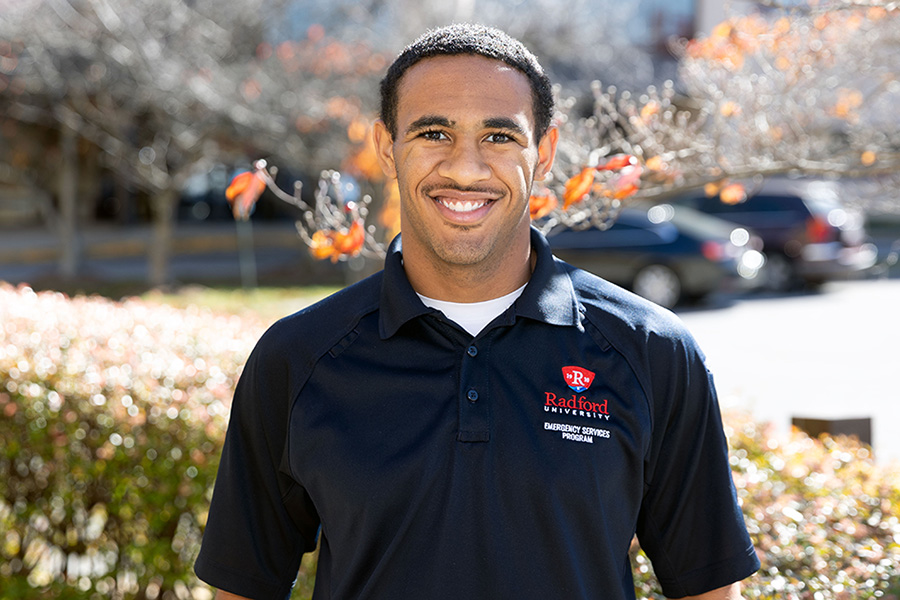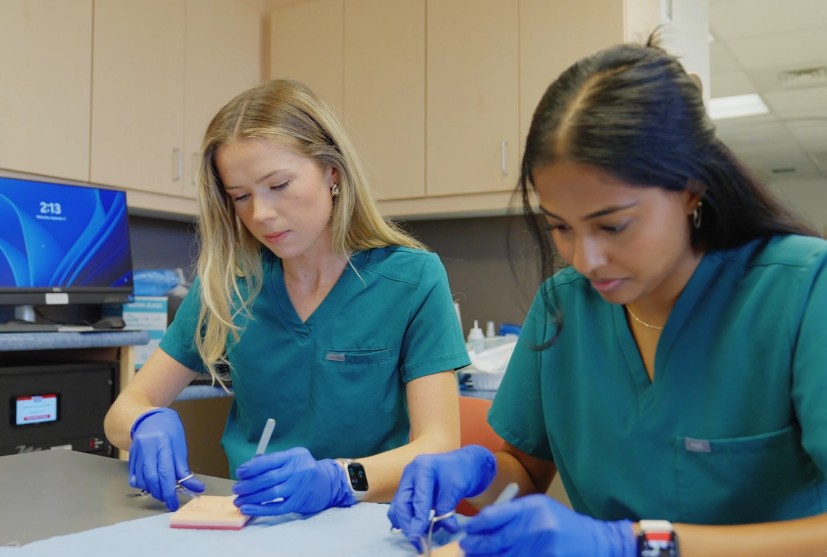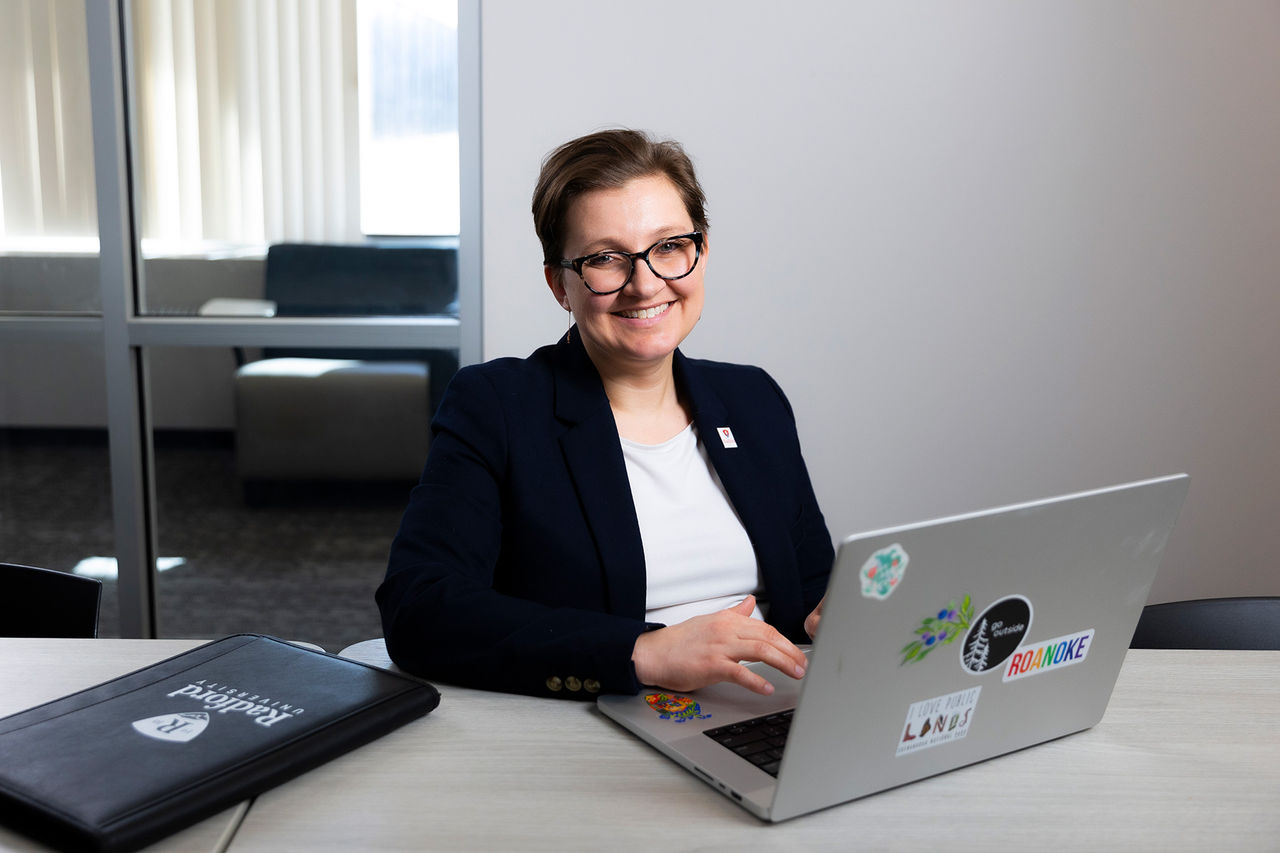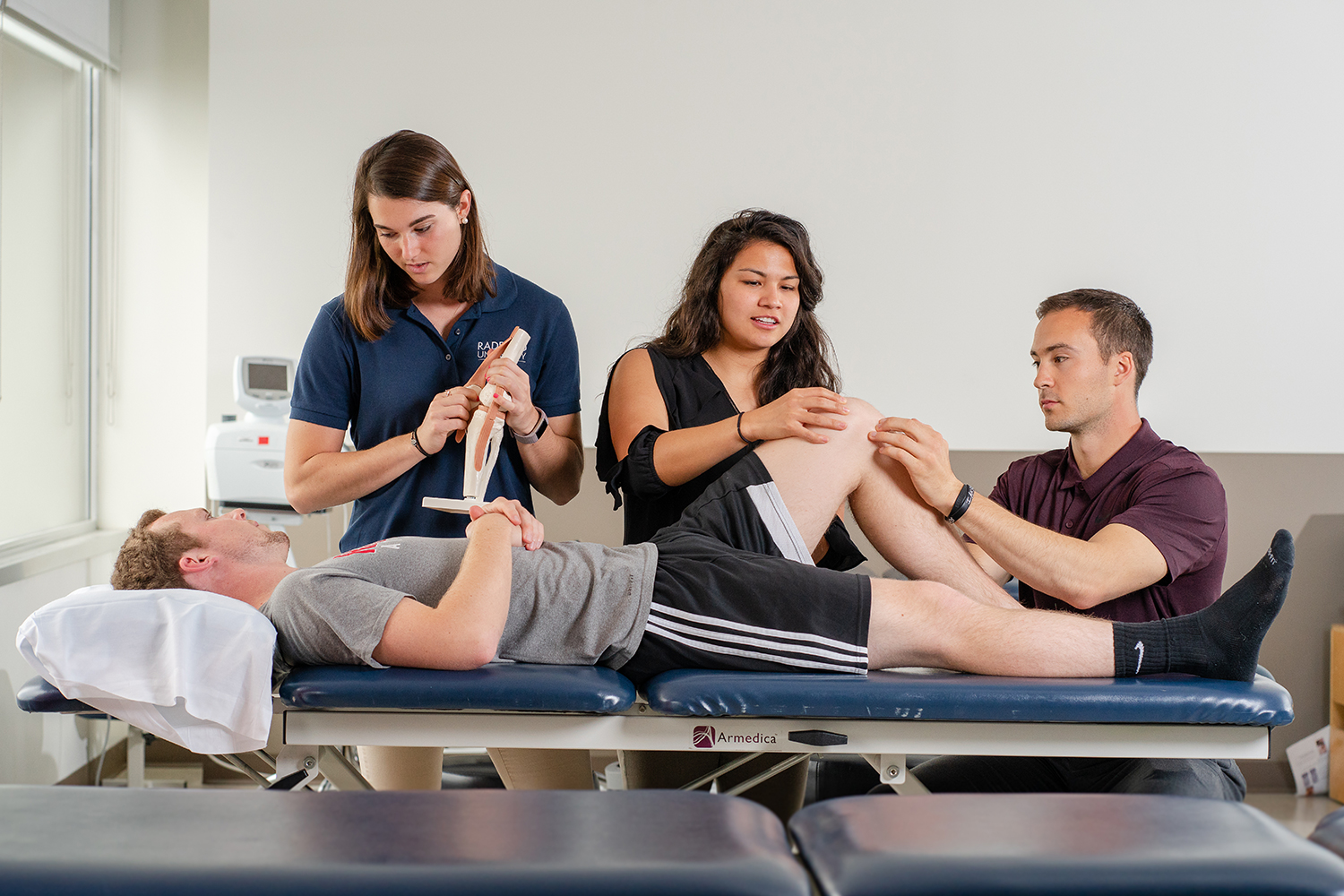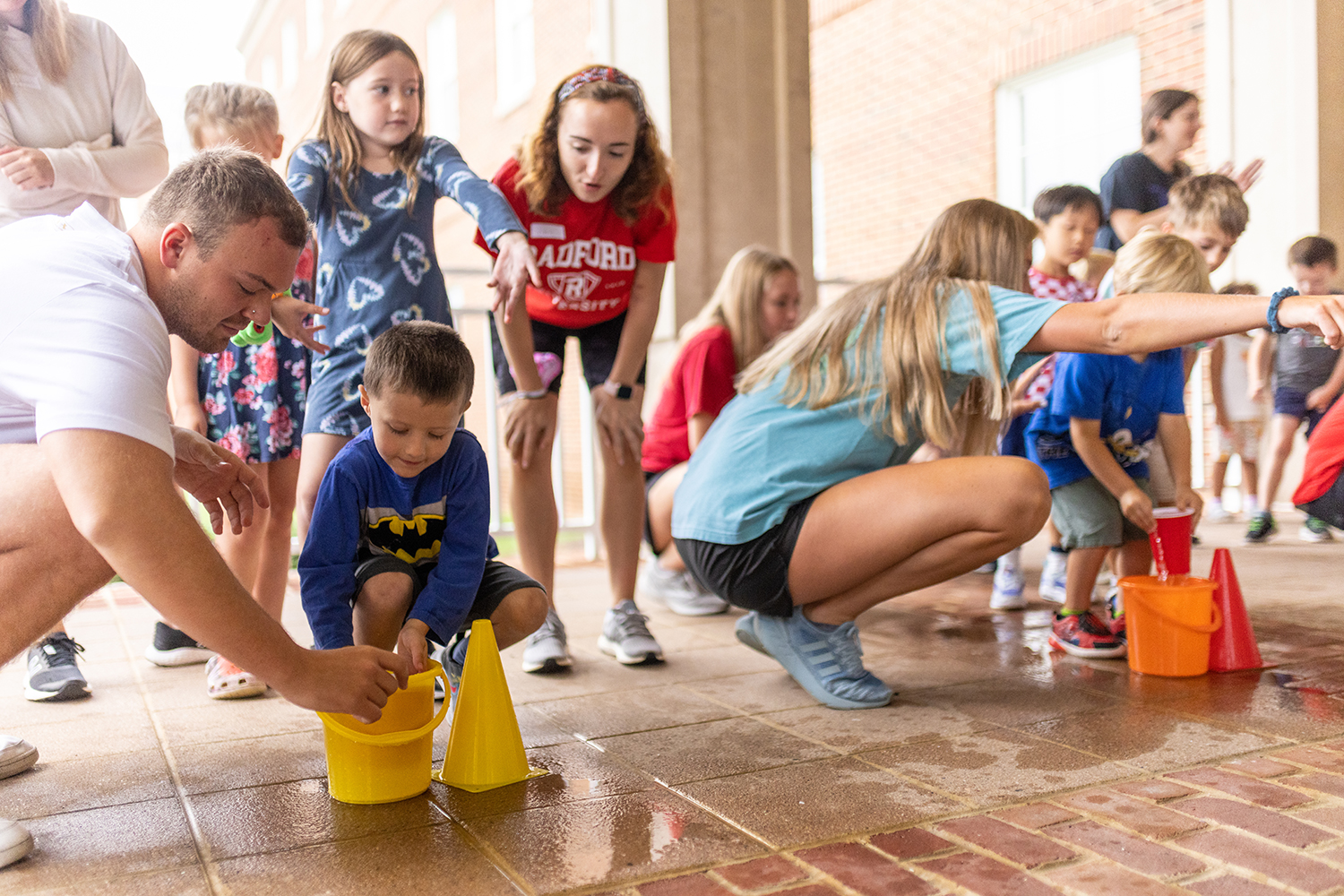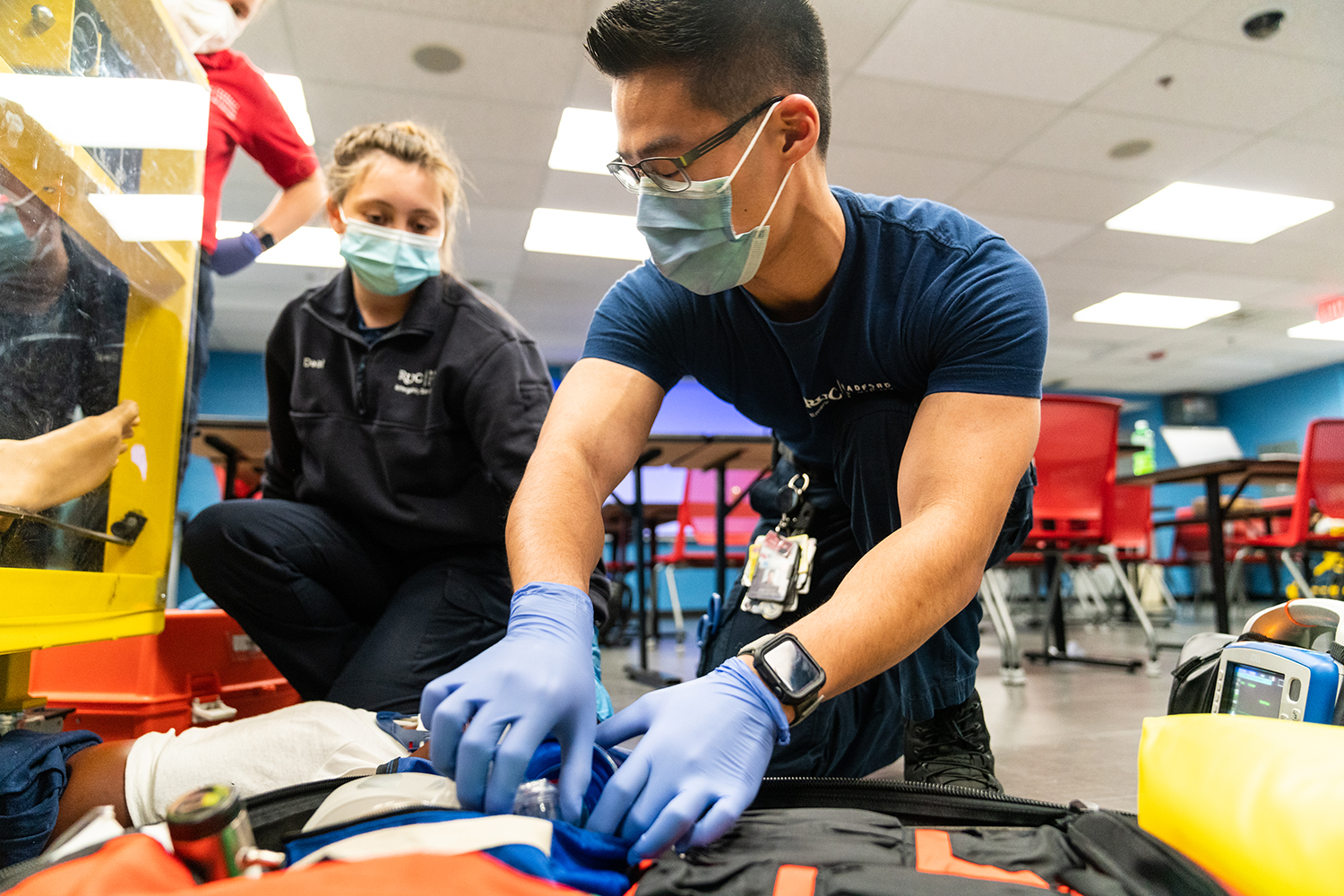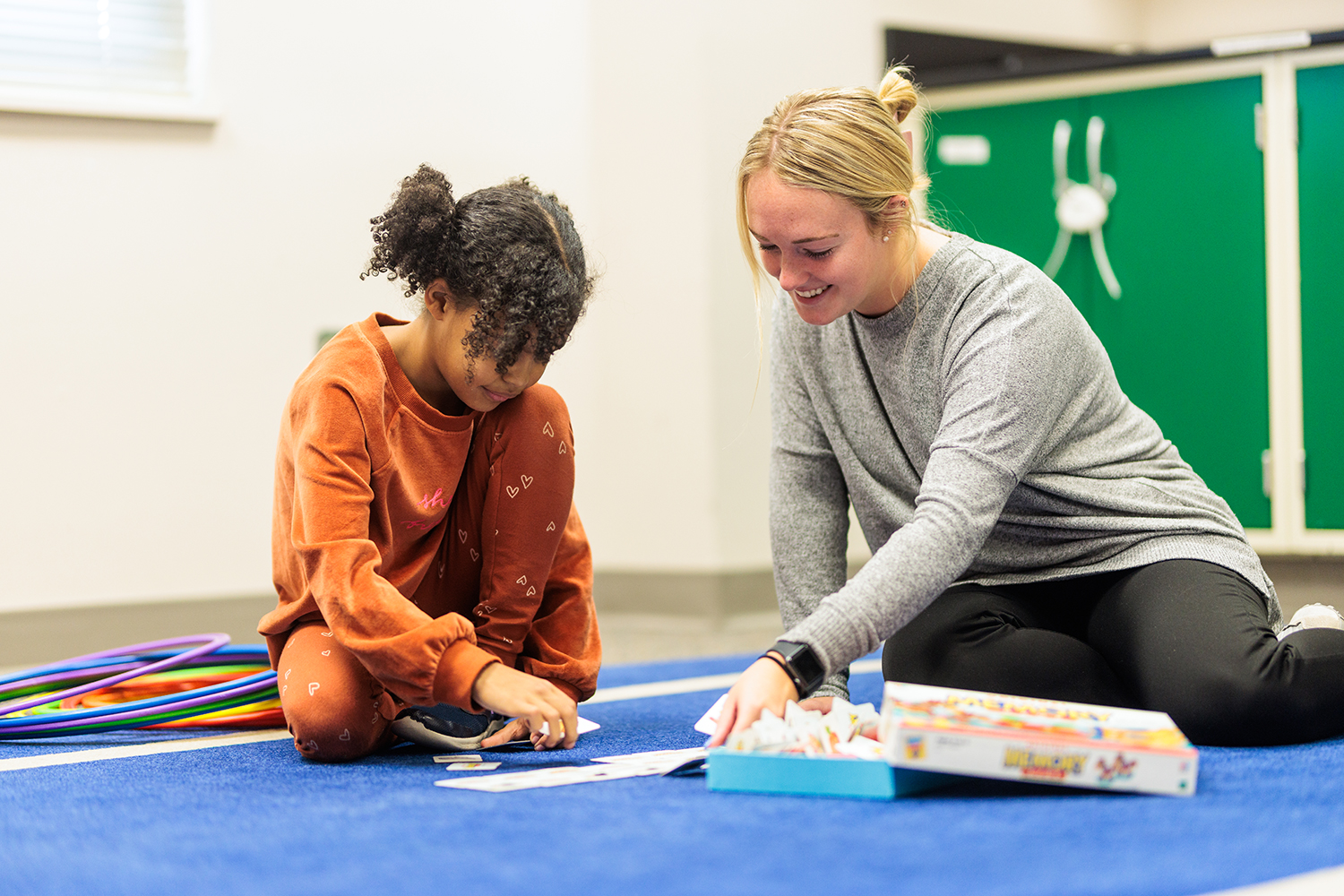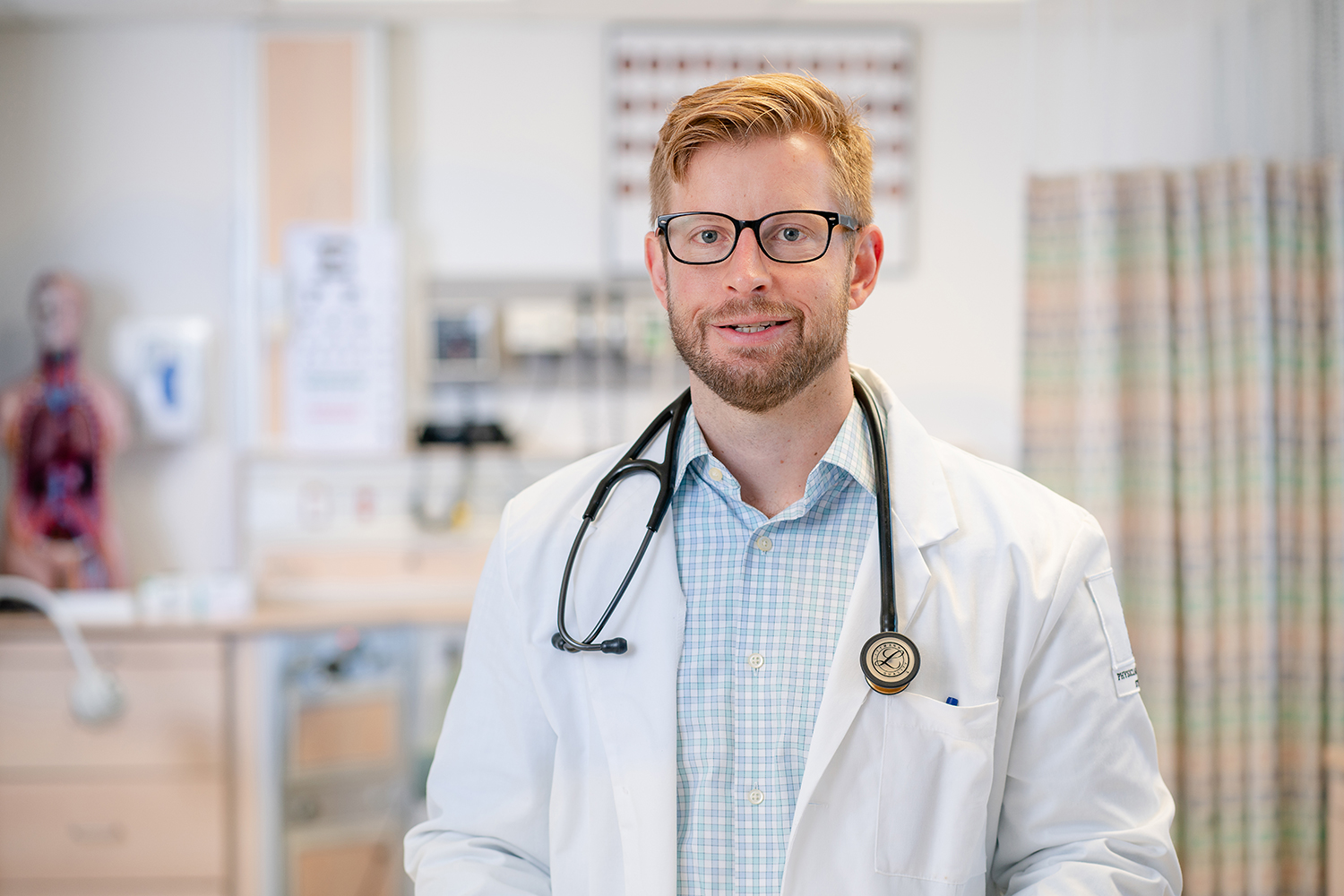Radford University
Waldron College of Health and Human Services
An Innovative Healthcare Education
The Waldron College of Health and Human Services is a community of clinician-scholars preparing competent, compassionate professionals to meet the needs of southwest Virginia and beyond.
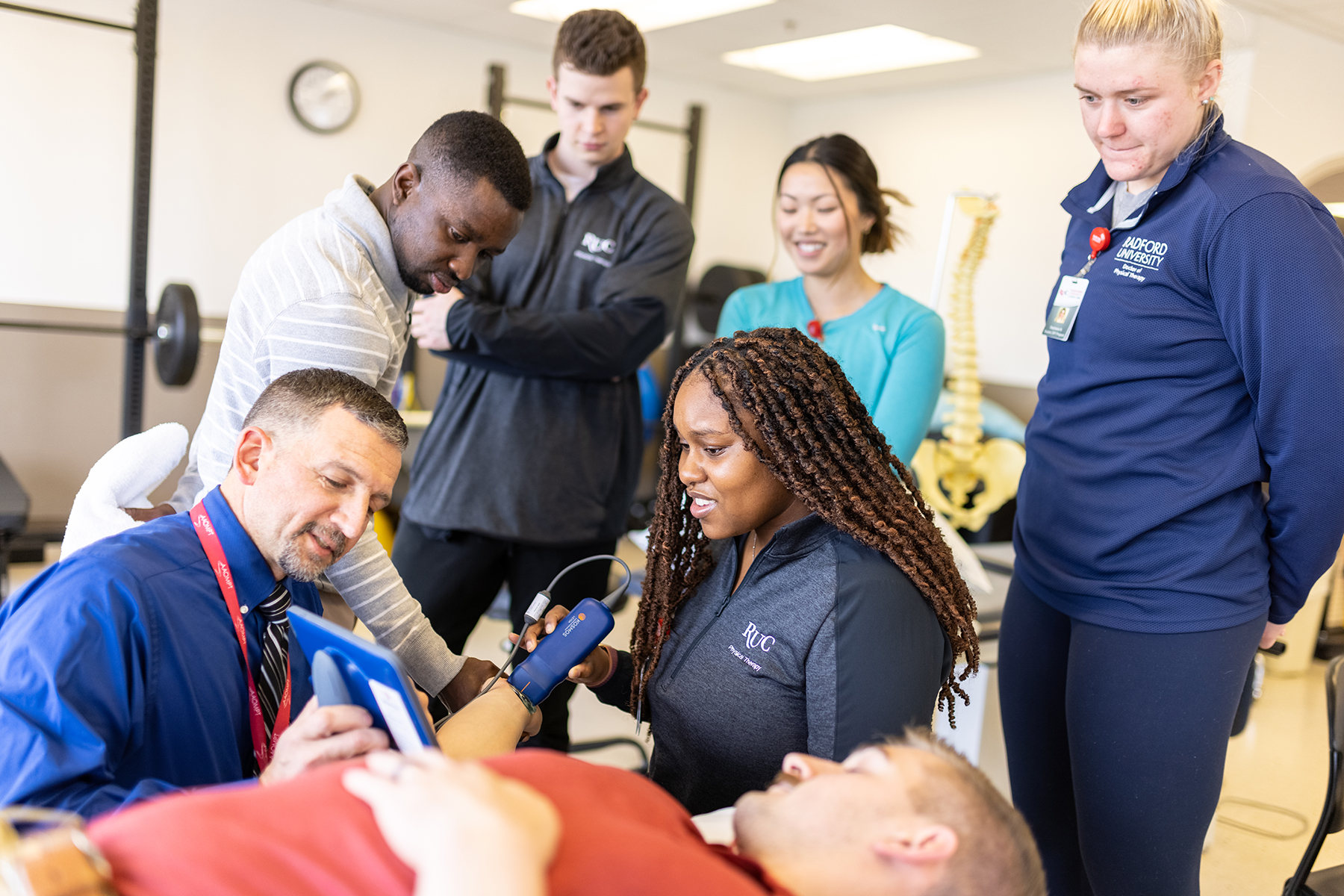
Preparing Healthcare Leaders with Modern Technologies
Our students experience a hands-on healthcare education with the latest and emerging technologies at facilities in Radford and Roanoke.
-
Waldron Hall
Main Campus in Radford, VA

-
Artis Center for Adaptive Innovation and Creativity
Main Campus in Radford, VA

-
Radford University Carilion
Roanoke Community Hospital in Roanoke, VA

-
Roanoke Higher Education Center
Roanoke, VA

A First-Gen Journey into Social Work
First generation student Ambrianna Spurell shares how Radford University helped her combine her interests with her goals to become successful in the field of social work. Spurells says, "I was already interested in music and art, and Radford University helped me apply those interests into social work to provide people with really cool outlets."
Academic Departments and School

Outreach Centers and Clinics
The Waldron College of Health and Human Services provides several services to the university and surrounding communities.
Waldron College News
-
Find your place, take it with you: celebrating the Radford University class of winter 2025
December 10, 2025
Get to know seven graduates of the Class of Winter 2025 and the moments that made their Radford journey unforgettable.

-
Artis Center for Adaptive Innovation and Creativity earns national recognition for design excellence
November 14, 2025
Radford University’s Artis Center for Adaptive Innovation and Creativity has been recognized among the nation’s most outstanding architectural achievements.
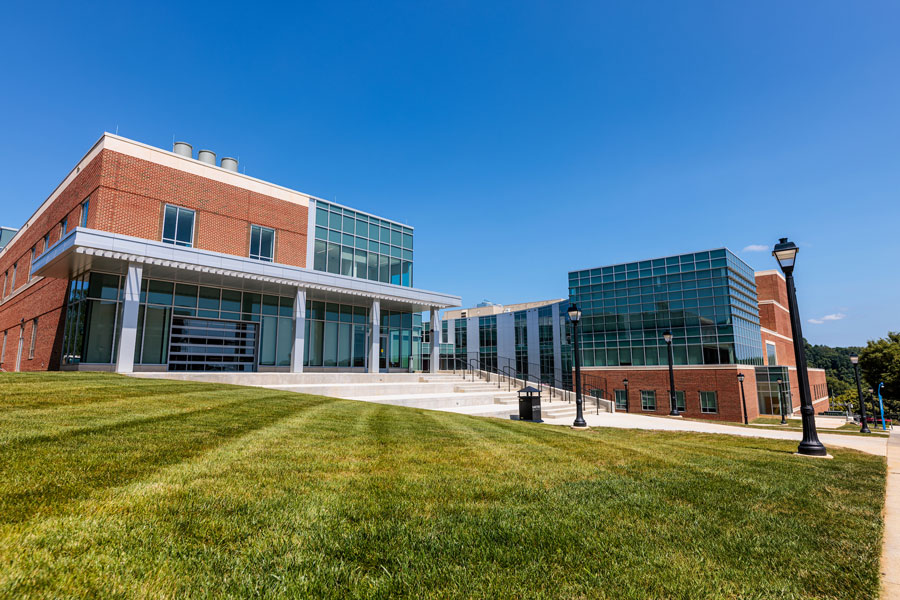
-
Highlander Highlights: Week of Nov. 10, 2025
November 14, 2025
Highlander Highlights shares with readers some of the extraordinary accomplishments happening on and off campus through the tireless work and curiosity of our students, faculty, staff and alumni.
